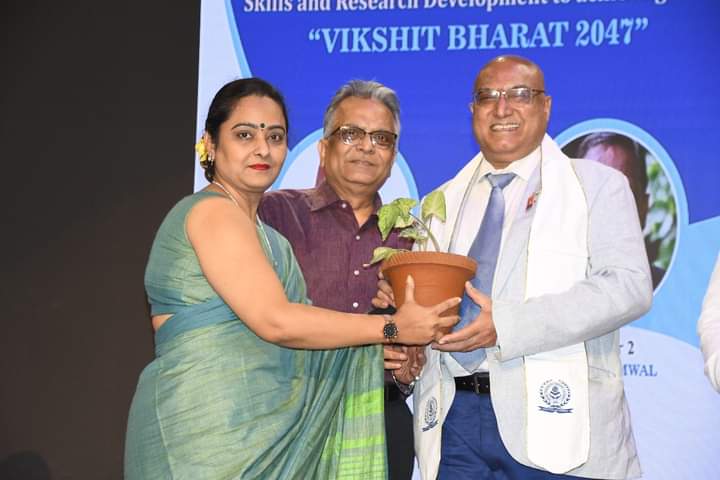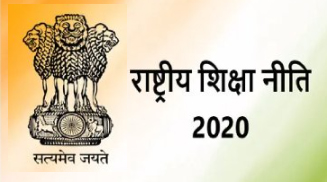Meerut, September 20- “To address the financial challenges faced by the States in implementing the National Education Policy, the effective utilization of the education cess collected from taxpayers is crucial for achieving Viksit Bharat,”, opined Prof. Madan Mohan Goel, a three-time Vice-Chancellor including Rajiv Gandhi National Institute of Youth Development (RGNIYD Sriperumbudur) -Institute of National Importance and the propounder of the Needonomics School of Thought. He was delivering the lecture on “Union Budget 2024-25: Perceptions and Pathways Toward Viksit Bharat 2047” organized by Swami Vivekananda Chair, Swami Vivekanand Subharti University, Meerut. The event was presided over by the Vice-Chancellor G.K. Thapliyal, while Dr Monika Mehrotra , Swami Vivekananda Chair, , delivered the welcome address and presented a citation highlighting Prof. M.M. Goel’s achievements.
By integrating need-based thinking into curricula, promoting values of moderation, sustainability, social responsibility, and fostering a culture of innovation that addresses real-world challenges, education systems must align with the principles of Needonomics, explained Prof Goel.
To play a transformative role in realizing the vision of Viksit Bharat, higher education institutions must adopt a proactive approach to curriculum design, research, and collaboration, positioning themselves as centers of learning that drives national development, said Prof Goel.
Union Budget 2024-25 allocated Rs 47,619.77 crore for higher education an increase of 7.68% from 2023-24 and presents opportunities for higher education institutions (HEIs) to play a crucial role in advancing Viksit Bharat, with a focus on employment, skills, and research development, told Prof. Goel.
The focus must be on equipping the youth with skills that are not only market-relevant but also contribute to the overall well-being of society as emphasis on skill development and employment, said Prof. Goel.
Despite the introduction of new tax slabs, Prof. Goel emphasized that income taxpayer, who make up only 2% of the population, should be recognized as a minority group on par with other minorities in India, claiming specific benefits and protections.




















